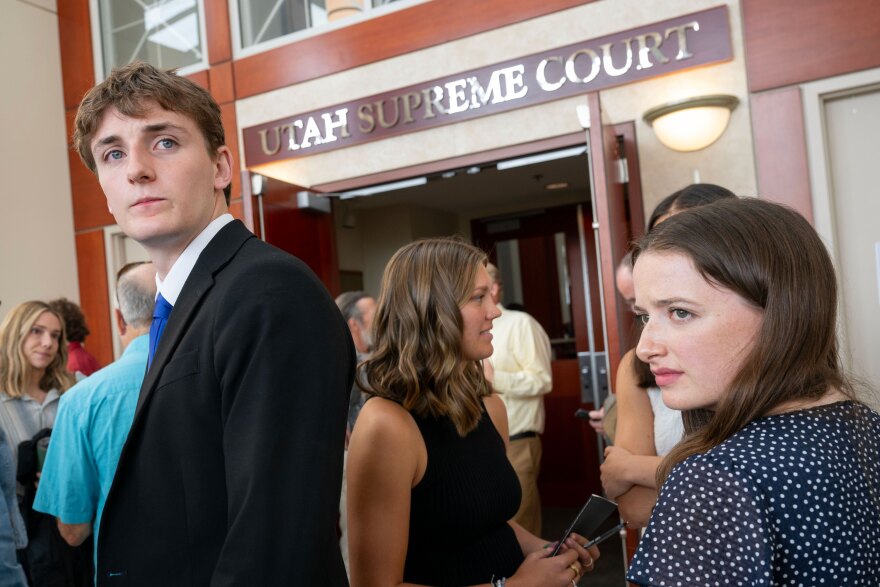The Utah Supreme Court has upheld the dismissal of a lawsuit brought by seven young people who said the state’s energy policies fuel climate change and harm their lives.
And both sides see it as a partial victory.
In their lawsuit against the state and Gov. Spencer Cox, the group argued Utah’s reliance on fossil fuels, such as coal and natural gas, violated their constitutional right to life. They wanted to change the state’s energy policies in favor of renewable sources. Data shows greenhouse gas emissions have fueled increasingly frequent and intense heat waves in Utah and around the globe, and extreme heat events already cause more deaths in the U.S. than any other weather hazard.
The case was initially dismissed in 2023 by a lower court judge. While stipulating the youths had a valid concern, the judge said it wasn’t an issue for the courts to wade into. In a unanimous ruling on March 20, the Supreme Court affirmed the lower court’s decision and said the plaintiffs’ arguments were too vague.
“We had no doubt that that would be the outcome,” Cox said during his March 20 monthly news conference. “These are frivolous claims that have no basis in law or under our constitution, and we believe that we are pursuing the best energy policies for the people of our state and for the future.”
Still, the Supreme Court’s decision left the door open for the plaintiffs to continue their legal fight.
In the opinion, Justice Diana Hagen wrote that the lower court should have dismissed the case without prejudice, rather than with prejudice, and instructed the lower court to modify its ruling. That means the plaintiffs will have another chance to amend their case and try to link specific government actions with the environmental harms they claim.
Eighteen-year-old Natalie Roberts views the opportunity as a win.
“I think it's really exciting that we're just able to continue with this,” she said, “and it's really great to have the Utah Supreme Court at least acknowledge the significance of this case.”
The Utah case is an attempt to follow a landmark ruling by the Montana Supreme Court in 2023, which said the state violated its constitution by failing to consider how fossil fuels contribute to climate change.
Despite falling short, the plaintiffs’ attorney, Andrew Welle of Oregon-based legal organization Our Children’s Trust, said the court decision provides guidance for how they might be able to make their case stronger.
“It's not everything that we wanted from the Supreme Court's opinion, but there's really a lot to celebrate here,” Welle said. “So, when we're back in the lower court, we'll be amending the complaint, identifying with more specificity what the state is doing to exacerbate Utah's climate and air quality crises.”
Utah leaders continue to push for an all-of-the-above energy policy that includes fossil fuels along with other sources that don’t produce carbon emissions. After the ruling, Cox argued that the policies environmentalists advocate for are only making it harder to build those new energy projects.
“No amount of regulation is going to do what [the plaintiffs] want us to do,” Cox said. “Innovation is the key to securing our energy future, decarbonizing our atmosphere and making life better for all of us.”
Welle said it’s good to see Utah pursue some renewable energy options, but the effort to expand and permit fossil fuel projects counteracts those environmental gains and threatens to continue the negative health impacts brought on by climate change.
“The case is all about the climate crisis here, at least in the state of Utah, and it comes at a really important time,” Roberts said. “We're seeing really bad air quality. Our winters are getting worse. And it's just really important that we're working to change these policies that are causing such harm in our state.”
The group’s legal team said they’ll get the chance to amend their argument in the lower court within a couple of months.






